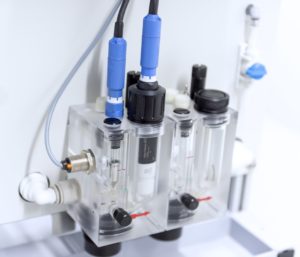Endress+Hauser has launched the Memosens CCS51D sensor for free chlorine. According to the company, the sensor provides high precision measured values, even at low water volumes, to help protect people from illness and systems from damage.

Free chlorine is used in water treatment due to its easy handling, disinfecting power, and residual effect. Overdosing can have toxic effects and can waste money. According to Endress+Hauser, the CCS51D offers precise dosing control of free chlorine. It features a membrane design that assures an extremely fast response time, according to the company, and helps plant operators run their disinfection processes on tight limits and with only as much chemical usage as is required.
The CCS51D sensor’s convex membrane is made of dense, dirt-repellent material that prevents soiling and makes it extremely resistant to biofouling, according to Endress+Hauser. Ultrasonic welding of the membrane to the sensor cap ensures its integrity, preventing dilution of the electrolyte and thus a drift of the measuring signal. This guarantees long-term stable measurements, according to the company, and gives water plant managers the security that the disinfection process is running smoothly and the required disinfection results are achieved.
The free chlorine sensor is equipped with the Memosens technology. This technology allows for direct commissioning of new sensors without further calibration, according to Endress+Hauser. During ongoing operation, plant operators can pre-calibrate sensors in the lab and swap them into the process with plug and play. Finally, non-contact data transmission eliminates all measurement errors or even failures caused by humidity or corrosion, according to the company.












